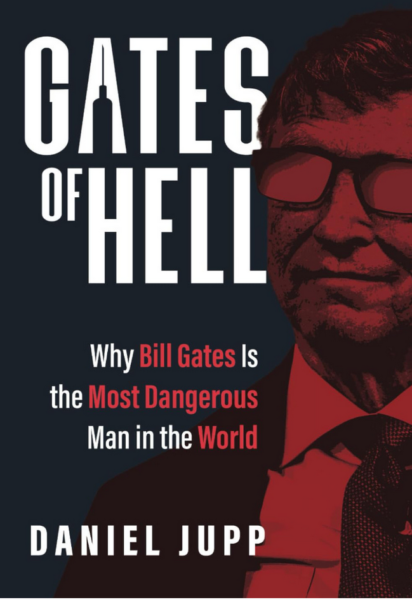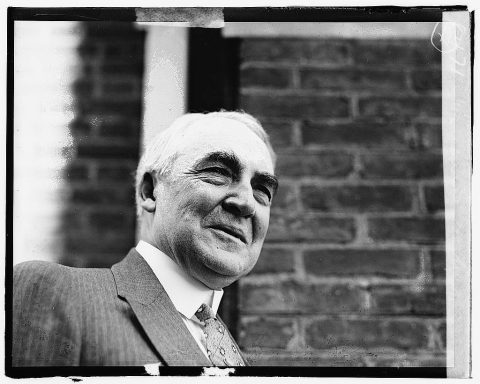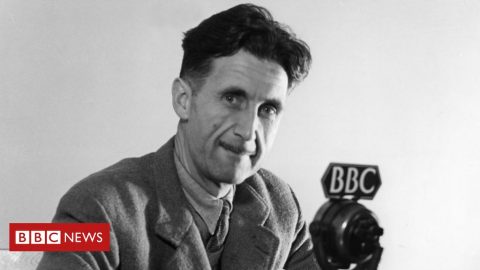Tasting History with Max Miller
Published 22 Aug 2023
(more…)
December 8, 2023
The Real Betty Crocker’s Pineapple Upside Down Cake
December 2, 2023
Shane MacGowan, RIP
I’ve been a long-time fan of the Pogues, and Shane MacGowan was the original lead singer for their first several albums. His lifestyle and undependability brought about a break with the rest of the band who continued on without him. I rather lost track of him soon after his next band, the Popes, had one okay album that showed MacGowan hadn’t shaken his demons. I still post his duet with the late Kirsty MacColl every Christmas. In The Pillar, Ed Condon remembers MacGowan:

Shane MacGowan performing in Japan on an unknown date.
Photo by Masao Nakagami via Wikimedia Commons.
Yesterday Shane MacGowan, lead singer of the Pogues, died at age 65.
He was, in every sense, a living legend of Irish music — so much so that many people, sincerely, expressed shock that he was actually still alive. [NR: Literally the words out of my mouth when Elizabeth told me he’d died.]
Most people, at least in this country, know him best for his fiercely melancholic Christmas ballad “Fairytale of New York”, though the Pogues albums Rum, Sodomy & the Lash and If I Should Fall from Grace with God firmly fixed MacGowan as the living conduit of a musical tradition all too often dismissed as a postcard anachronism, created to appeal to tourists.
There was nothing contrived, though, about MacGowan, who was the living embodiment of the distinctly Irish contradiction of “fierce melancholy.” An incredibly gifted writer and poet, he wrote, performed — and lived — with a kind of burning urgency that seemed at once self-consuming and yet in him, rather than from him.
It would be easy to dismiss the riotous drinker and singer, whose punk-inflected incarnation of Irish ballardry seemed stoked with some terrible ferocity, as just an eloquently wounded product of a now nearly vanished Irish society. But what marked him out, to me, was that he was driven by something from within, not without.
Born on Christmas Day in 1957 to Irish parents in England, he spent his early life back in Ireland, living in a family cottage in rural Tipperary, where the children slept three to a bed, there was no running water, and the family cooked on an open fire.
According to his parents, music and storytelling were the focus of their family life in those days.
“It was basic and beautiful,” he said of his childhood. “It was the end of an era that I just happened to catch. And I’m glad I caught it, you know?”
[…]
“All I ever had were happy times,” is how MacGowan described his childhood in Ireland.
This deep understanding and love for his own history and where he came from, which John Paul II also wrote about in Memory and Identity, suffused MacGowan’s music.
But even as he became a kind of living totem in his home country it was clear he loathed the spotlight, writhed during interviews, and fought, often unsuccessfully, to balance his natural reticence with the convulsive need to make his music.
It drove him to at times terrible self-destruction, but the defiance and desperation of his singing seemed always directed back within himself. And it was a great comfort to read his family’s announcement that he’d died with the last rites imparted.
He was a man for whom the words of Jim Harrison, another great poet, seemed to be written:
Some people hear their own inner voices with great clearness and they live by what they hear. Such people become crazy, or they become legend.
Rest in peace, Shane.
November 29, 2023
Alfred the Great
Ed West‘s new book is about the only English king to be known as “the Great”:

There are no portraits of King Alfred from his time period, so representations like this 1905 stained glass window in Bristol Cathedral are all we have to visually represent him.
Photo by Charles Eamer Kempe via Wikimedia Commons.
History was once the story of heroes, and there is no greater figure in England’s history than the man who saved, and helped create, the nation itself. As I’ve written before, Alfred the Great is more than just a historical figure to me. I have an almost Victorian reverence for his memory.
Alfred is the subject of my short book Saxons versus Vikings, which was published in the US in 2017 as the first part of a young adult history of medieval England. The UK edition is published today, available on Amazon or through the publishers. (use the code SV20 on the publisher’s site, valid until 30 November, which gives 20% off). It’s very much a beginner’s introduction, aimed at conveying the message that history is just one long black comedy.
The book charts the story of Alfred and his equally impressive grandson Athelstan, who went on to unify England in 927. In the centuries that followed Athelstan may have been considered the greater king, something we can sort of guess at by the fact that Ethelred the Unready named his first son Athelstan, and only his eighth Alfred, and royal naming patterns tend to reflect the prestige of previous monarchs.
Yet while Athelstan’s star faded in the medieval period, Alfred’s rose, and so by the fifteenth century the feeble-minded Henry VI was trying to have him made a saint. This didn’t happen, but Alfred is today the only English king to be styled “the Great”, and it was a word attached to him from quite an early stage. Even in the twelfth century the gossipy chronicler Matthew Paris is using the epithet, and says it’s in common use.
However, much of what is recorded of him only became known in Tudor times, partly by accident. Henry VIII’s break from Rome was to have a huge influence on our understanding of history, chiefly because so many of England’s records were stored in monasteries.
Before the development of universities, these had been the main intellectual centres in Christendom, indeed from where universities would grow. Now, along with relics, huge amounts of them would be lost, destroyed, sold … or preserved.
It was lucky that Matthew Parker, the sixteenth-century Archbishop of Canterbury with a keen interest in history, had a particularly keen interest in Alfred. It was Parker who published Asser’s Life of Alfred in 1574, having found the manuscript after the dissolution of the monasteries, a book that found itself in the Ashburnham collection amassed by Sir Robert Cotton in the late sixteenth and early seventeenth centuries.
Sadly, the original Life was burned in a famous fire at Ashburnham House in Westminster on October 23, 1731. Boys from nearby Westminster School had gone into the blaze alongside the owner and his son to rescue manuscripts, but much was lost, among them the only surviving manuscript of the Life of Alfred, as well as that of Beowulf. In fact the majority of recorded Anglo-Saxon history had gone up in smoke in minutes.
A copy of Beowulf had also been made, although the poem only became widely known in the nineteenth century after being translated into modern English. The fire also destroyed the oldest copy of the Burghal Hidage, a unique document listing towns of Saxon England and provisions for defence made during the reign of Alfred’s son Edward the Elder. An eighth-century illuminated gospel book from Northumbria was also lost.
So it is lucky that Parker had had The Life of Alfred printed, even if he had made alterations in his copy that to historians are infuriating because they cannot be sure if they are authentic. He probably added the story about the cakes, for instance, although this had come from a different Anglo-Saxon source.
We also know that Archbishop Parker was a bit confused, or possibly just lying; he claimed Alfred had founded his old university, Oxford, which was clearly untrue, and he was probably trying to make his alma mater sound grander than Cambridge. Oxford graduates down the years have been known to do this on one or two occasions.
Grover Cleveland – more “republican” than any Republican alive today
Not having studied American history in school, I don’t know a lot about most American presidents, especially those of the 19th century whose names aren’t Jefferson, Jackson, or Lincoln. One of the presidents I only knew about because his name turned up in a lot of original Trivial Pursuit questions was Grover Cleveland, the only man (so far) who has ever been elected to non-consecutive terms:
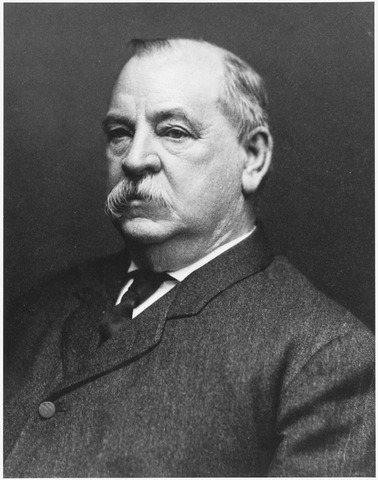
Grover Cleveland (1837-1908), President of the United States, 1885-89 and 1893-97.
Photo from the National Archives and Records Administration (NAID 518139) via Wikimedia Commons.
Cleveland won the White House in 1884 on a platform of restraining federal spending and corruption. Running for re-election in 1888, he won the popular vote but lost to Republican Benjamin Harrison in the Electoral College. A major reason he came out of retirement to run again in 1892 was the reckless spending of the Harrison administration. He beat Harrison that year and became the only man ever elected to non-consecutive terms (1885-89 and 1893-97).
I call to the reader’s attention an article ex-President Cleveland wrote three years after the end of his second term, in June 1901. Titled “The Waste of Public Money”, it was one of half a dozen he penned for The Saturday Evening Post. In this one, he referred to “a malign condition which threatens us,” an “evil” that he saw as “calamitous and destructive to our national character and integrity”.
In 1901, the federal government spent half a billion dollars over the whole year, roughly equivalent in real terms to around $12 billion today. Washington spends that much now in about half a day. Lest you think the feds were misers in 1901, ponder what Cleveland had to say in his article that year:
Probably no one will have the hardihood to deny that the cost of our Government is excessive and wasteful, and that for this condition the heedless neglect and indifference of our people are in some degree responsible … If the aggregate mass of our people are at all blameworthy on account of the present advanced stage of public prodigality, it is largely because they overlooked and tolerated its small beginnings, when at all times they should have been vigilant and uncompromising. A self-ruling people … should constantly remember that nothing multiplies itself more abundantly than national extravagance, and that neither an individual nor a popular government can easily correct or check habits of waste.
The former president did not for a moment believe that only the politicians were to blame for excessive spending. He boldly asserted that many Americans embraced it. They were effectively bought and paid for, guilty of “accepting the bribes of selfish and personal advantage which public waste and extravagance offer”.
Cleveland was often warned by advisers to moderate his stances to avoid controversy. Biographer H. Paul Jeffers quotes him as responding once to such advice by asking, “What is the use of being elected or re-elected unless you stand for something?” When he vetoed a bill to relieve drought-stricken farmers with federal money, he made it plain that “though the people support the government, the government should not support the people”. He saw his job as upholding the Constitution and keeping the federal government in its proper place, not weakening “the bonds of common brotherhood” by robbing Peter to pay Paul.
This was a man who said what he meant and meant what he said, come Hell or high water. He spoke with a clarity of principle that makes a nation great, and the absence of which makes a great nation fail. He understood that no society in history that allowed itself to be bribed by its politicians ever survived such legal larceny.
In the final paragraphs of his June 1901 Saturday Evening Post article, Cleveland admonished his fellow Americans. With these words, he urged them to muster the character to resist being bribed with their own money:
The lessons of extravagance and paternalism must be unlearned; economy and frugality must be reinstated; and the people must exact from their representatives a watchful care for the general welfare and a stern resistance to the demands of selfish interests, if our Government is to be an enduring and beneficent protection to a patriotic and virtuous people.
Many Americans today would undoubtedly dismiss Cleveland’s warnings as “quaint” and “old-fashioned”. They want the government to give them stuff and they don’t think much about who will pay for it. They think even less about how it corrupts the national character.
November 27, 2023
Elagabalus, the first queer or trans Roman emperor?
I guess it was inevitable that the urge to “queer” the museum or “queer” history would eventually dig up Elagabalus as an icon, as his brief reign certainly drew a lot of slander in the years that followed his death (similar to what historians wrote about Caligula or Nero … once they were safely dead):
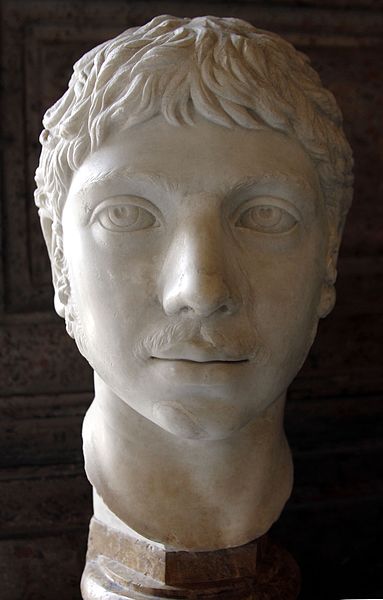
Bust of Elagabalus in the Palazzo Nuovo – Capitoline Museums – Rome.
Photo by José Luiz Bernardes Ribeiro / CC BY-SA 4.0.
It’s not such a stretch as it may sound. As well as throwing wild parties, Elagabalus was also said to have openly flouted contemporary gender roles. The emperor is said to have also dressed as a female sex worker, “married” a male slave and acted as his “wife”, asked to be referred to as “lady” rather than “lord” and even, according to one account, begged to have a surgical vagina made by a physician.
The stories led Keith Hoskins, executive member for arts at North Herts council, to say in a statement: “Elagabalus most definitely preferred the she pronoun, and as such this is something we reflect when discussing her in contemporary times … It is only polite and respectful. We know that Elagabalus identified as a woman and was explicit about which pronouns to use, which shows that pronouns are not a new thing.”
But do we know that? Thanks to a growing awareness of more complex ideas of gender in history, and a desire to reject historical prejudices, Elagabalus has been reclaimed in recent decades as a genderqueer icon.
However, many historians disagree that the evidence is as unambiguous as the museum says. Mary Beard, formerly professor of classics at Cambridge University, directed followers on X to her latest book, titled Emperor of Rome, which opens with a lengthy discussion of the “tall stories” told about Elagabalus.
The accounts of sexual unconventionality (and extravagant cruelty) largely originate with hostile historians who wanted to win the favour of Elegabalus’s successor, Severus Alexander, and so portrayed the emperor in the worst light possible, she says. “How seriously should we treat them? Not very is the usual answer,” Beard writes, calling the stories “untruths and flagrant exaggerations”.
The Romans may not have shared current understandings of trans identity, but several of the contested accounts about Elagabalus feel remarkably modern, points out Zachary Herz, assistant professor of classics at the University of Colorado in Boulder, who has written about how we should approach the story of Elagabalus in the context of queer theory.
Asserting that Elagabalus requested female pronouns is an “astonishingly close translation” of a story written by the third-century historian Cassius Dio, says Herz. “Elagabalus is literally saying, ‘Don’t call me this word that ends in the masculine ending, call me this word that ends in the feminine’. So it’s unbelievably close to correcting someone’s pronouns.”
The problem, as he sees it, is that “I just don’t think it really happened”. “The quote-unquote biographies” written under Elagabalus’s successor are “hit pieces”, he says. “I would be inclined to read [them] as basically fictional.”
Martijn Icks, a lecturer in classics at the university of Amsterdam and author of a book about Elagabalus’s life and posthumous reputation, agrees that the stories about the emperor should be taken with “a large pinch of salt”. The same “effeminacy narrative” that has made Elagabalus a queer icon “was meant to character assassinate the Emperor, to show that he was completely unsuitable to occupy this position”, he says, adding that other so-called “bad emperors” including Nero and Caligula were described in very similar terms.
Racial prejudice also played a part, says Icks: before coming to Rome to rule it, Elagabalus was a priest in an obscure cult in Syria that venerated a black stone meteorite – a culture that would have been deeply strange to the Romans.
“And the stereotype that Romans had of Syrians … is that they were very effeminate and not real men like the Romans were.”
November 25, 2023
Ridley Scott’s Napoleon
I was initially quite interested in Ridley Scott’s Napoleon, but given the criticism from historians, I doubt I’ll make the effort to see the film in the theatre. I’ve quite enjoyed some of Scott’s earlier “historic” movies, but it appears that he’s taken the historical figure of Napoleon and “interpreted” it to better fit his preferences for a film. Bret Devereaux‘s initial response is rather telling:
For this week’s musing, I want to comment at least briefly on dust-up surrounding Ridley Scott’s latest film, Napoleon and historians. As was evidently heavily reported, Ridley Scott responded to historians doing critiques of the film’s historical accuracy by telling them to “get a life” and suggesting that the earliest works on Napoleon were the most accurate and that subsequent historians have just progressively gotten more wrong.
I think there are two questions to untangle here: is the film accurate and does it matter? Now I haven’t yet seen the film, I’ve only seen the trailer. But my response to the trailer seems to have been basically every historian’s response to the trailer: Napoleon shows up at all sorts of places, doing all sorts of things he didn’t do. In particular, the battle scenes I’ve seen in the trailer and other snippets bear functionally no relationship to either Napoleonic warfare in general or the Battle of Austerlitz in particular (the bit with large numbers of soldiers drowning in a frozen lake was disconfirmed at the time; the lake was drained and few remains were found).
All of this is not a huge shock. All of Ridley Scott’s historical movies take huge liberties with their source material. Sometimes that’s in the service of a still interesting meditation on the past (Kingdom of Heaven, The Last Duel), sometimes in service of just a fun movie (Gladiator). Ridley Scott, in particular, has never mastered how basically any historical battle was fought and all of the battle scenes in his movies that I’ve seen are effectively nonsense (including Gladiator, which bears functionally no relationship to how Roman armies actually fought open field battles). Cool looking nonsense, but nonsense. Heck, Gladiator‘s entire plot is basically nonsense with some characters sharing historical names and very little else with their actual historical counterparts (the idea of Marcus Aurelius aiming to restore the republic in 180 is pretty silly).
So it isn’t a surprise that Ridley Scott’s grasp on Napoleonic warfare is about at the level of a not particularly motivated undergraduate student or that he has finessed or altered major historical details to make a better story. Its Ridley Scott, that’s what he does. Sometimes it works great (Kingdom of Heaven), sometimes it works poorly (Exodus: Gods and Kings).
Does it matter?
Unsurprisingly, I think that Ridley Scott is being more than a bit silly with his retorts to historians who are using his film as an opportunity to teach about the past. That’s what we do. Frankly, I find the defensiveness of “get a life” more than a bit surprising, as I assumed Ridley Scott knew he didn’t have much of a grasp on the history and was OK with that (or better yet, did have a grasp on it, but chose to alter it; I do not get this sense from his commentary), but it rather seems like he thinks he does know and is now very upset with the D+ he got on his exam and has decided to blame his “nitpicky” professor instead of his not having done the reading.
That said, when it comes to criticism (in the sense of “saying things are wrong“, rather than in the sense of “critical analysis”), I think there is a distinction to make. In the past I’ve framed this as the degree to which works “make the claim” to some kind of historical validity. It might be a fun exercise to talk about the armor in, say, Dungeons and Dragons or The Elder Scrolls and we might even learn something doing that, but neither of those works is making any claim to historical accuracy or rootedness. And so the tenor of the discussion is quite different.
But here I think Ridley Scott is to a significant degree making the claim. Of the battles, Ridley Scott says, “It’s amazing because you’re actually reconstructing the real thing” and that he “started to think like Napoleon”, which is once again both clearly making that claim (“the real thing”) and also just a remarkable thing to say given how much of a mess his battle scenes generally are. He also comments that “the scale of everything is so massive … I’d have 300 men and a hundred horses and 11 cameras in the field” and while that’s far more cameras than were on any Napoleonic battlefield, that’s just not a statement which suggests that Ridley Scott is even very aware of other achievements in recreating historical battles. Gettysburg (1993) had something on the order of five thousand reenactors on the field for filming and it is by no means the largest such effort! Spartacus (1967) had a cast of eight thousand Spanish soldiers to play the Roman legions.
So while I do not know if Napoleon is a good movie or not – I haven’t seen it yet – it seems pretty clear to me that Ridley Scott did make the claim for some of its fundamental historicity and the response of historians has been to reject that claim. And I think it’s actually quite fair to also skewer the apparent whiny arrogance of Scott making that claim baselessly and then responding petulantly when historians handed him that “D+, please come see me after class”. If you want to make historical fiction, by all means do – Scott is very good at it! – but do not be upset if historians call it what it is.
November 24, 2023
The Man Who Started the Cold War
World War Two
Published 23 Nov 2023What if I told you that a new conflict will sweep the globe in less than a year? It will open not with gunshots but with silent, shadowy espionage. The man who will kick off the Cold War is a quiet Canadian pilot, millionaire, and spymaster. A trusted aide to Churchill and FDR. I bet you haven’t heard this name before: William Stephenson.
(more…)
November 22, 2023
“[T]he Tudors were indeed pretty awful, and that the writers who lived under this dynasty did serve as propagandists”
I quite like a lot of what Ed West covers at Wrong Side of History, but I’m not convinced by his summary of the character of King Richard III nor do I believe him guilty of murdering his nephews, the famed “Princes in the Tower”:
As Robert Tombs put it in The English and their History, no other country but England turned its national history into a popular drama before the age of cinema. This was largely thanks to William Shakespeare’s series of plays, eight histories charting the country’s dynastic conflict from 1399 to 1485, starting with the overthrow of the paranoid Richard II and climaxing with the War of the Roses.
This second part of the Henriad covered a 30-year period with an absurdly high body count – three kings died violently, seven royal princes were killed in battle, and five more executed or murdered; 31 peers or their heirs also fell in the field, and 20 others were put to death.
And in this epic national story, the role of the greatest villain is reserved for the last of the Plantagenets, Richard III, the hunchbacked child-killer whose defeat at Bosworth in 1485 ended the conflict (sort of).
Yet despite this, no monarch in English history retains such a fan base, a devoted band of followers who continue to proclaim his innocence, despite all the evidence to the contrary — the Ricardians.
One of the most furious responses I ever provoked as a writer was a piece I wrote for the Catholic Herald calling Richard III fans “medieval 9/11 truthers”. This led to a couple of blogposts and several emails, and even an angry phone call from a historian who said I had maligned the monarch.
This was in the lead up to Richard III’s reburial in Leicester Cathedral, two and a half years after the former king’s skeleton was found in a car park in the city, in part thanks to the work of historian Philippa Langley. It was a huge event for Ricardians, many of whom managed to get seats in the service, broadcast on Channel 4.
Apparently Philippa Langly’s latest project — which is what I assume raised Ed’s ire again — is a new book and Channel 4 documentary in which she makes the case for the Princes’ survival after Richard’s reign although (not having read the book) I’d be wary of accepting that they each attempted to re-take the throne in the guises of Lambert Simnel and Perkin Warbeck.
The Ricardian movement dates back to Sir George Buck’s revisionist The History of King Richard the Third, written in the early 17th century. Buck had been an envoy for Elizabeth I but did not publish his work in his lifetime, the book only seeing the light of day a few decades later.
Certainly, Richard had his fans. Jane Austen wrote in her The History of England that “The Character of this Prince has been in general very severely treated by Historians, but as he was a York, I am rather inclined to suppose him a very respectable Man”.
But the movement really began in the early 20th century with the Fellowship of the White Boar, named after the king’s emblem, now the Richard III Society.
It received a huge boost with Josephine Tey’s bestselling 1951 novel The Daughter of Time in which a modern detective manages to prove Richard innocence. Paul Murray Kendall’s Richard the Third, published four years later, was probably the most influential non-fiction account to take a sympathetic view, although there are numerous others.
One reason for Richard’s bizarre popularity is that the Tudors were indeed pretty awful, and that the writers who lived under this dynasty did serve as propagandists.
Writers tend to serve the interests of the ruling class. In the years following Richard III’s death John Rous said of the previous king that “Richard spent two whole years in his mother’s womb and came out with a full set of teeth and hair streaming to his shoulders”. Rous called him “monster and tyrant, born under a hostile star and perishing like Antichrist”.
However, when Richard was alive the same John Rous was writing glowing stuff about him, reporting that “at Woodstock … Richard graciously eased the sore hearts of the inhabitants” by giving back common lands that had been taken by his brother and the king, when offered money, said he would rather have their hearts.
Certainly, there was propaganda. As well as the death of Clarence, William Shakespeare — under the patronage of Henry Tudor’s granddaughter — also implicated Richard in the killing the Duke of Somerset at St. Albans, when he was a two-year-old. The playwright has him telling his father: “Heart, be wrathful still: Priests pray for enemies, but princes kill”. So it’s understandable why historians might not believe everything the Bard wrote about him.
I must admit to a bias here, as I wrote back in 2011:
In the interests of full disclosure, I should point out that I portrayed the Earl of Northumberland in the 1983 re-enactment of the coronation of Richard III (at the Cathedral Church of St. James in Toronto) on local TV, and I portrayed the Earl of Lincoln in the (non-televised) version on the actual anniversary date. You could say I’m biased in favour of the revisionist view of the character of good King Richard.
November 12, 2023
The most dangerous man in the world?
Elizabeth Nickson on Daniel Jupp’s new biography of Bill Gates, Gates of Hell: Why Bill Gates is the Most Dangerous Man in the World:
A new book, Gates of Hell: Why Bill Gates Is the Most Dangerous Man in the World by Daniel Jupp, manages to dissect all of Gates’s activities since September 2011 and has he ever been a busy psychopath. Jupp is one of the several gifted polemicists called forth by the gnarly times we live in. He soared to recognition with witty, but somehow soothing Facebook blasts that combined PJ O’Rourke with Jonathan Swift with Steve Bannon. Everyone passed around his posts exulting. Jupp, if that is his real name, hails from working class England, Essex to be precise-ish, and edits or writes for Country Squire Magazine. Whatever, he is of the time and do we ever need him.
Jupp in Gates of Hell is careful. He does not risk libel, not even a whiff of it. And in contrast to his usual oxygen-rich posts, he is measured, calm, working with a surgeon’s focus, as he peels back the PR, the methodology, the results, the hiding of the malign results, the cantering on to the next heady task as the ultimate white Saviour. Unfortunately, as Jupp describes, Gates is not quite as simple as that. He also changes law, dictates policy in far too many countries where he does not belong, buys all the media, and every politician he can. When he calls, the Great and the Good come to sit in his Presence and be lectured to in that stickily sentimental tone about his noble purpose. When he makes a mistake, and almost everything he does is a mistake, he spends several hundred million dollars buying desperate legacy media and every functional PR firm to cover it up.
Gates’s life changed when his practice of turning competitors to scorched earth, thereby crippling innovation in the digital world, resulted in an embarrassing court case. The sullen, nit-picking slug on trial, radiating contempt is, I suspect, the real Gates, or his shadow self, very much like Gollum in LOTR defending his Precious. Jupp skates by the many charges of sexual abuse, but points out that he formally left Microsoft after one of them became too big to ignore.
Gates then constructed his new self. He married, not a babe, but a substantive character, and had three children in quick succession. He hired the most expensive fixers and PR, and built himself an avuncular sweater-clad persona. He was going to give away his massive fortune, give back to the people from his incredible privilege.
In the ensuing years, that fortune doubled and then doubled again.
That’s because he met Jeffrey Epstein. While Epstein’s sexual activities have received 90% of the attention, his activities during the last years of the Clinton administration are the more significant. First of all, Epstein was running an entrapment scheme for various covert agencies, which made his insinuation into government easy. At the same time, he taught high-level government officials, cabinet ministers, heads of agencies, and the great larcenous dame herself, Hillary Clinton, how to steal. It was a pincer movement. Having second thoughts? Here’s a video of your encounter with a fourteen year old.
I’ll make it super simple: he taught these people, and they weren’t all Democrats, how to stand up a policy meant to benefit the least advantaged, like for instance access to the housing ladder, and then profit off it. Since then every government initiative has carved out for its progenitor, a fortune. His first, of course, was Freddie Mac and Fannie Mae and James Johnson who ran these agencies into deep bankruptcy, collapsed the ’08 economy, nevertheless walked away with $100 million from a government job. Wall Street Journal reporter, Gretchen Morgenson’s Reckless Endangerment covers the waterfront here.
November 5, 2023
October 31, 2023
In the 1920 presidential election, Americans voted overwhelmingly for a return to “normalcy”
Warren G. Harding’s term in office has been treated like a punchline by progressive writers and commentators for a century, but Lawrence W. Reed refutes this easy mockery and points out that the winner of the 1920 election deserves much better:
Routinely dismissed as a bad chief executive, Harding’s reputation is undergoing a long overdue renovation. The latest contribution in that regard is a new, must-read biography by Ryan S. Walters titled, The Jazz Age President. Read it, and you’ll forever be skeptical of the lazy, biased, conventional historians who worship power and those who wield it.
Warren Harding didn’t just tell audiences what they wanted to hear. He sometimes told them what they did not want to hear. He went to Birmingham, Alabama to condemn racism and Jim Crow laws, for example — a fact I’ve previously pointed out.
Conventional historians praise Presidents for the bills they signed into law but often it requires more courage and conviction to veto them. On that score too, Harding can be judged favorably. He vetoed six bills in the 2-1/2 years he served in the White House. None of the six was overridden. That may not sound like a lot but remember, his party controlled both houses by big majorities; Congress didn’t send him much it thought he wouldn’t sign.
Four bills Harding vetoed concerned minor issues and generated little attention, but one concerned a bonus for veterans of World War I. It stirred up quite a fuss. As the bill worked its way through the House and Senate, Harding gave ample warning that he wouldn’t even consider a bonus that wasn’t paid for. Congress ignored him and sent the bill to his desk. He rejected it, noting as follows:
In legislating for what is called adjusted compensation, Congress fails to provide the revenue from which the bestowal is to be paid. We have been driving in every direction to curtail our expenditures and establish economies without impairing the essentials of governmental activities. It has been a difficult and unpopular task. It is vastly more applauded to expend than to deny.
After the Civil War, Congress paid pensions to veterans of the conflict and their dependents. Sixty years later, in 1923, it sent a bill to Harding to grant pensions to women who married aging Civil War veterans long after the war. It even authorized higher payments to them than what recent widows of veterans in the war with Germany were getting. His veto message included this unassailable objection:
The compensation paid to the widows of World War veterans, those who shared the shock and sorrows of the conflict, amounts to $24 per month. It would be indefensible to insist on that limitation upon actual war widows if we are to pay $50 per month to widows who marry veterans 60 years after the Civil War.
Congress should have known better than to expect Harding to sign such bills. This was the same man who declared at his modest, unembellished inauguration that “Our most dangerous tendency is to expect too much of government”. He had expressed a desire to put “our public household in order”. He said he wanted “sanity” in economic policy, combined with “individual prudence and thrift, which are so essential to this trying hour and reassuring for the future”.
If somebody told me all that, I wouldn’t even think of asking him to approve a check for an able-bodied 30-year-old simply because she married an 80-year-old veteran.
This was the same Warren Harding, remember, who gave the country perhaps the best Treasury Secretary in its history, Andrew Mellon. According to historian Burton Folsom, Mellon slashed government expenses and eliminated an average of one Treasury staffer per day for every single day he held the office. Harding, Mellon and Calvin Coolidge (Harding’s successor), together with a friendly Congress, reduced the federal budget and cut the national debt by more than one-third.
October 29, 2023
QotD: Leni Riefenstahl’s Triumph of the Will
Eighty-five years ago today, the National Socialist Party was midway through its hugely successful rally at Nuremberg — the Reichsparteitag des Willens, or Rally of the Will. Unlike previous get-togethers, the 1934 rally would produce a hit movie, one that cinéastes still watch with appalled fascination to this day. Its creator was a brilliant cinematographer and editor who could compose and edit anything — except, in the end, her own life. If only she’d been able to snip one problematic decade out of her 101 years, we’d know Leni Riefenstahl as a game old gal who in her sixties went off to live with an African tribe, in her seventies learned to scuba dive, and at the age of 98 survived a plane crash in the Sudan. There was a documentary made about her a few years back in which she’s seen getting off the boat at the end of a day’s diving. The captain and her friend Horst walk up the pier ahead of her, lost in conversation. She follows behind, carrying her scuba gear and oxygen tank. She’s 92, and it never occurs to either man to give her a hand. They don’t think of her as a woman or as a nonagenarian.
Ah, if only it weren’t for that awkward patch …
In the 1930s, Fräulein Riefenstahl put her formidable film-making talents to the cause of the Third Reich, and, after attending the Reichsparteitag des Willens in 1934, produced one of the most remarkable films ever made: Triumph Of The Will.
Go back to that scuba-diving disembarkation scene in Ray Müller’s The Wonderful Horrible Life Of Leni Riefenstahl. In theory, it could all be a setup, and the participants chewed over how best to do it beforehand and did fifteen takes: anyone who’s worked in documentaries knows how phony the whole business is. But the point is it seems careless — as if it happened, and the camera happened to be there to record it.
There’s no sense of that in any frame of Triumph Of The Will. Granted that audiences were a lot less media savvy in 1934, and granted that a people dumb enough to fall for National Socialism will fall for anything, it’s still hard to believe that even in its day anyone accepted what remained Fräulein Riefenstahl’s official explanation to the end — that this was just a “documentary record” of the 1934 annual party convention. Early on, we see the Führer‘s motorcade driving through Nuremberg, with what seems like the entire citizenry jammed on to the streets to greet him. Riefenstahl’s camera shoots Hitler (if you’ll forgive the expression) from directly behind him, a sequence which for some reason always reminds me of Gore Vidal’s boast that only very famous people such as himself know what the back of their heads look like. There’s a fabulous moment when the great man — Adolf, not Gore — is responding to the Hitler salutes offered up by the crowds with his campy little elbow-bend and wrist-flip and, as his Mercedes moves forward, the sun catches his fingers and fills the palm, first bathing it in glory and then making it appear as if the Führer‘s hand is the very source of the sunlight itself. Did the director just get lucky? Did the sun just happen to hit? Seconds later, we cut to a long shot of Hitler in the Mercedes continuing down the street. There’s no camera in the car, although the scene we’ve just witnessed could only have been filmed by someone in the back seat. Another minute goes by, and we’re back to the close-up of the Führer‘s neck.
Did she stop the car, get out and film the long shot, and then get back in? Did Leni get Adolf to do re-takes? Or maybe she made the entire population of Nuremberg re-take the scene; maybe they staged the procession twice. If Hitler was unusually agreeable about taking direction, it was because this was never a filmed record of an event so much as an event created for the film. Whatever Triumph Of The Will is, it’s not a documentary. Its language is that of feature films — not Warner Brothers gangster movies or John Ford westerns, but rather the supersized genres, the epics and musicals where huge columns of the great unwieldy messy mass of humanity get tidied and organized — and, if that isn’t the essence of totalitarianism, what is? Riefenstahl has the same superb command of the crowd as Busby Berkeley, the same flair for human geometry (though Berkeley would have drawn the line at giving the gentlemen of the chorus as swishy a parade step as Hitler’s personal SS bodyguard do).
Mark Steyn, “Triumph of the Will”, SteynOnline, 2019-09-07.
October 8, 2023
Richard Blair’s memories of his father, George Orwell
Jonathon Van Maren contacted Richard Horatio Blair, the adopted son of George Orwell to discuss his memories of his famous father:
“My story starts on the 14th of May, 1944, when I was adopted by Eric Arthur Blair and his wife Eileen,” he told me. “This was during the Second World War. He’d been wanting a child for several years because he felt, rightly or wrongly, that he was unable to have children himself. I think this was compounded slightly by the fact that Eileen — my mother — was not very well herself, and in fact when I was ten months old, in March of 1945, she went to the hospital in Newcastle, which was the area where she was born and had gone to school. She went into a nursing home and died very soon after being anesthetized to have a hysterectomy. She probably had cancer, was very anemic, and simply had a heart attack on the operating table and died.”
The adoption had come about when Eileen was told by her sister-in-law, Dr. Gwen Shaughnessy, that she knew of a pregnant woman whose husband was off fighting. Orwell and Eileen adopted Richard when he was only three weeks old, and Orwell ensured that he alone would be known as Richard’s father by burning the names of the birth parents from the birth certificate with a cigarette. Richard would never know Eileen, as she died a mere nine months after the adoption took place, leaving the little boy and Orwell to fend for themselves. Some of Orwell’s friends suggested that perhaps he turn Richard over to someone else, but Orwell was having none of it. “I’ve got my son now, I’m not going to give him over,” Blair recalled. Blair even remembers Orwell “changing my nappy and feeding me after my mother died.”
“Meanwhile, my father had been asked to go to Germany at the end of the war by his friend, a gentleman by the name of David Astor of the Astor family,” Blair told me.
He was the proprietor of a newspaper called The Observer, and he asked my father — they had met during the war and become friends — to go to Germany after the war to observe what was happening, and it was while he was in Paris that he got a telegram telling him that Eileen, my mother, had died. He had to rush back and attend to the funeral and funeral arrangements. He decided the best thing he could do would be to go back to Germany and continue his war report, so that’s what he did. I was placed in the hands of relatives and friends to be looked after. I was cared for from that period onward by a nanny.
In 1946, he had decided to give up his reviews and extra work, because by now he had published his first major book, Animal Farm, which gave him enough resources to think about what to do next. And he had in his mind by then that he wanted to write what turned out to be 1984, and he decided to take the invitation of his friend David Astor to go to a remote island off the west coast of Scotland called Jura. He went up for a holiday and spent a couple of weeks there in the early part of 1946, came back, and announced that he would like to move out of London to this island of Jura and rent a farmhouse called Barnhill. A few weeks later I joined him with my nanny at the farmhouse, a place he had indicated to a friend was a very ‘un-get-at-able’ place.
Indeed it was. To reach the remote Hebridean island from London, “you had to take a train and several ferries, and then a taxi from the top part of the island, and then for the last five miles you had to walk,” Blair recalled. At first, it was Richard, Orwell, and his nanny, Susie Watson. This didn’t last long: Watson clashed with Orwell’s younger sister Avril and returned to London. “From that point on,” Blair told me, “I was cared for by my father’s sister Avril, and that continued well past when he died in 1950.” In the meantime, Blair still had a few precious years with his ailing father, who was trying to balance his fear of passing on his tuberculosis to his son with wanting to be an involved father. “He was really hands-on in a way that was really unusual for that era,” Blair told one interviewer.
In fact, he was so hands-on that he even worried about Richard’s television consumption, which is perhaps not surprising from someone who was so concerned about how people absorbed information — but Richard was, at this point, a very small child. “As a father he was completely devoted to me,” Blair told me. “He was terribly worried about my emotional development simply because he had TV, and he was very concerned that the views [on TV] might be passed on to me.” Blair still bears a scar on his temple from balancing on a chair while “watching him make a wooden toy for me”. He fell off the chair, cracked his head, and was bustled down to the village for a few stitches in the enormous gash on his forehead. “There’s a groove in the bone,” he ruefully told one interviewer. But there were no tests in those days, and so his head was sewn shut and he was sent back home again.
September 14, 2023
Scott Alexander reviews the (old) Elon Musk biography
It’s okay, he makes it clear from the start that he’s talking about Ashlee Vance’s earlier work, not the one that just hit the shelves this year:
This isn’t the new Musk biography everyone’s talking about. This is the 2015 Musk biography by Ashlee Vance. I started reading it in July, before I knew there was a new one. It’s fine: Musk never changes. He’s always been exactly the same person he is now.1
I read the book to try to figure out who that was. Musk is a paradox. He spearheaded the creation of the world’s most advanced rockets, which suggests that he is smart. He’s the richest man on Earth, which suggests that he makes good business decisions. But we constantly see this smart, good-business-decision-making person make seemingly stupid business decisions. He picks unnecessary fights with regulators. Files junk lawsuits he can’t possibly win. Abuses indispensable employees. Renames one of the most recognizable brands ever.
Musk creates cognitive dissonance: how can someone be so smart and so dumb at the same time? To reduce the dissonance, people have spawned a whole industry of Musk-bashing, trying to explain away each of his accomplishments: Peter Thiel gets all the credit for PayPal, Martin Eberhard gets all the credit for Tesla, NASA cash keeps SpaceX afloat, something something blood emeralds. Others try to come up with reasons he’s wholly smart – a 4D chessmaster whose apparent drunken stumbles lead inexorably to victory.
Elon Musk: Tesla, SpaceX, And The Quest For A Fantastic Future delights in its refusal to resolve the dissonance. Musk has always been exactly the same person he is now, and exactly what he looks like. He is without deception, without subtlety, without unexpected depths.
The main answer to the paradox of “how does he succeed while making so many bad decisions?” is that he’s the most focused person in the world. When he decides to do something, he comes up with an absurdly optimistic timeline for how quickly it can happen if everything goes as well as the laws of physics allow. He – I think the book provides ample evidence for this – genuinely believes this timeline,2 or at least half-believingly wills for it to be true. Then, when things go less quickly than that, it’s like red-hot knives stabbing his brain. He gets obsessed, screams at everyone involved, puts in twenty hour days for months on end trying to try to get the project “back on track”. He comes up with absurd shortcuts nobody else would ever consider, trying to win back a few days or weeks. If a specific person stands in his way, he fires that person (if they are an employee), unleashes nonstop verbal abuse on them3 (if they will listen) or sues them (if they’re anyone else). The end result never quite reaches the original goal, but still happens faster than anyone except Elon thought possible. A Tesla employee described his style as demanding a car go from LA to NYC on a single charge, which is impossible, but he puts in such a strong effort that the car makes it to New Mexico.
This is the Musk Strategy For Business Success; the rest is just commentary.
1. Vance starts with the story of the biography itself. When Musk learned he was being profiled, he called Vance, threatened that he could “make [his] life very difficult”, and demanded the right to include footnotes wherever he wanted telling his side of the story. When Vance said that wasn’t how things worked, Elon invited him to dinner to talk about it. Elon arrived late, and spent the first few courses talking about the risk of artificial superintelligence. When Vance tried to redirect the conversation to the biography, Elon abruptly agreed, gave him unprecedented access to everyone, and won him over so thoroughly that the book ends with a prediction that Musk will succeed at everything and become the richest man in the world (a bold claim back in 2015).
I like this story but find myself dwelling on Musk’s request — why shouldn’t he be allowed to read his own biography before publication and include footnotes giving his side of the story where he disagrees? That sounds like it should be standard practice! If I ever write a post about any of you and you disagree with it, feel free to ask me to add a footnote giving your side of the story (or realistically I’ll put it in an Open Thread).
2. The book gives several examples of times Musk almost went bankrupt by underestimating how long a project would take, then got saved by an amazing stroke of luck at the last second. When Vance asked him about his original plan to get the Falcon 1 done in a year, he said:
“Reminded about the initial 2003 target date to fly the Falcon 1, Musk acted shocked. ‘Are you serious?’ he said. ‘We said that? Okay, that’s ridiculous. I think I just didn’t know what the hell I was talking about. The only thing I had prior experience in was software, and, yeah, you can write a bunch of software and launch a website in a year. No problem. This isn’t like software. It doesn’t work that way with rockets.”
But also, the employees who Vance interviewed admit that whenever Musk asks how long something will take, they give him a super-optimistic timeline, because otherwise he will yell at them.
3. I wondered whether Elon was self-aware. The answer seems to be yes. Here’s an email he wrote a friend:
“I am by nature obsessive compulsive. In terms of being an asshole or screwing up, I’m personally as guilty of that as anyone, and am somewhat thick-skinned in this regard due to large amounts of scar tissue. What matters to me is winning, and not in a small way. God knows why … it’s probably [rooted] in some very disturbing psychoanalytical black hole or neural short circuit.”
September 11, 2023
Golda Meir
Michael Oren reviews Golda a new biopic on the life of Israeli Prime Minister Golda Meir:
Ever since the 1970s, the entrances to many American Jewish institutions have boasted a single bust. It is not of Theodore Herzl, founder of the Zionist movement, or of Israel’s preeminent leader, David Ben-Gurion, nor even of any prominent American Jew — Justice Louis Brandeis or Rabbi Abraham Joshua Heschel. The likeness is not flattering. Beneath tightly bunned hair, the face is unsmiling, its features decidedly bland. Their owner never graduated college, wrote a transformative book, or commanded an army. Still, that statue embodies an ideal to which most American Jews aspire: at once patriotic yet open-minded, liberal but muscular, courageous and caring. The bust, moreover, is of a woman and not just any woman. With an accent as flat as the Midwestern plains, four packs of unfiltered cigarettes a day and the omnipresent purse that held them, the clunky shoes and grandmotherly attire, she was Everywoman. Yet, in a rags-to-preeminence story so appealing to Americans, that woman rose to become the prime minister of Israel. She was Golda Meir — or, as she’s still colloquially known, simply, Golda.
Until my grandmother’s death at the age of 100, she claimed that the proudest day of her life was hosting Golda for a fundraising event in her Boston home. In 1973, and again in 1974, a Gallup poll named Golda “Woman of the Year”, the only non-American ever to achieve that title, garnering twice as many votes as the runner-up, Betty Ford. Though no feminist — Ben-Gurion once called her “the only man in the government” — she became a poster-child of women’s liberation, appearing under the banner, “But Can She Type?” She served as the subject of two Broadway plays, several documentaries, and a made-for-television movie. Golda characters appear in a variety of productions, from Steven Spielberg’s Munich to season 26, episode 1 of The Simpsons. No fewer than nine English-language biographies have been written about her, in addition to her own memoir, and the recollections of her son. She was — and to a large extent, has remained — an American icon.
Not so for Israelis. For 50 years, the name Golda has been associated with reckless hubris, with humiliation and trauma and the loss of an innocent Israel that can never be retrieved. Most bitterly, the name Golda evokes the memory of the 2,656 Israeli soldiers — 83 times the number, proportionally, of Americans lost on 9/11 — killed on her watch. Israel has no end of streets and facilities named for Ben-Gurion, for Prime Ministers Levi Eshkol, Yitzhak Rabin, and Menachem Begin, but there are few Golda Meir boulevards or university halls. New York has Golda Meir Square, complete with that unprepossessing bust, but not Tel Aviv or Jerusalem. Only among Israeli children, born long after her death, does Golda elicit any excitement as the name of a popular ice-cream chain.
Now, half-a-century after her purportedly disastrous performance during the 1973 Yom Kippur War, there are attempts to revisit Golda’s legacy, to examine it in the light of recently released documents, and to reflect on the complex human being behind the bust. Spotlighting these revisions is a bold and riveting new film by Academy Award-winning director Guy Nattiv, starring the incomparable Helen Mirren. After portraying Queens Elizabeth I and II and Catherine the Great, Mirren praised her latest character “one of the most extraordinary I’ve ever played.” That estimation is more than illustrated by the movie simply titled Golda.
[…]
Golda Meir remained in her post for another eight months while the people of Israel seethed. Though the Agranat Commission accepted her claim that she acted solely on the defense establishment’s advice and cleared her of any personal responsibility for the war, the population resented the blame placed almost solely on the army. The country, devastated emotionally and economically, was further traumatized by terrorist attacks that killed 52 civilians and wounded 150. Later that year, terrorist leader Yasser Arafat, a holster on his hip, received a standing ovation from the UN General Assembly, which went on to equate Zionism with racism. Succumbing to Arab pressure, 24 of the African countries with which Golda helped establish relations cut ties with Israel. In 1977, the degraded Mapai Party for the first time lost an election to Menachem Begin’s Likud, ending what many Israelis still regard as the state’s golden age.
Such painful events are barely touched upon in either of the Golda films, which prefer to conclude her story with Sadat’s historic visit to Israel in November 1977. The subsequent peace process resulted in the signing of the Egyptian-Israeli peace treaty in 1979, a year after Golda’s death.
Yet her legacy endures — especially now, on the 50th anniversary of the war. Though her standing remains highest in the United States — the Israel National Library reports more searches for her name in English than in Hebrew—in Israel, too, her record is being reconsidered. Here was a woman without military experience who had to rely on men whose expertise on military matters was above reproach. Here was a woman who, when many of those men buckled to pressure, remained clear-headed and strong. And here was a woman who, contrary to long-held wisdoms, repeatedly held out her hand for peace.
Some critics have been unkind to Golda. They take issue with the film’s concentration on her career’s least illustrious period and with the allegedly one-dimensional depiction of a personality known to be compassionate one minute but backbiting the next, alternately maternal and coarse. Most expressed discomfort with the director’s obsession with Golda’s cigarettes — they are practically actors — which earned the film a PG-13 rating for “pervasive smoking”. I, for one, would have liked to see more of Golda’s insecurities about her lack of higher education, military experience, and Hebrew eloquence. I would have welcomed more of the swift-witted Golda who once quipped to Kissinger, arriving in Tel Aviv after exchanging kisses with Egyptian and Syrian leaders, “Why, Mr. Secretary, I didn’t know that you kissed girls, too!”
Nevertheless, Golda must take its place alongside other outstanding portraits of leaders in crisis. Like Gary Oldman’s Churchill in Darkest Hour and Bruce Greenwood’s Kennedy in Thirteen Days, Helen Mirren’s Golda Meir offers a profile of greatness in the face of overwhelming adversity. These are films that, rather than merely report and redramatize facts, show us character. And Golda — the woman, not the myth — should continue to generate our interest as well as our respect. The Everywoman behind the bust should still be revered.



